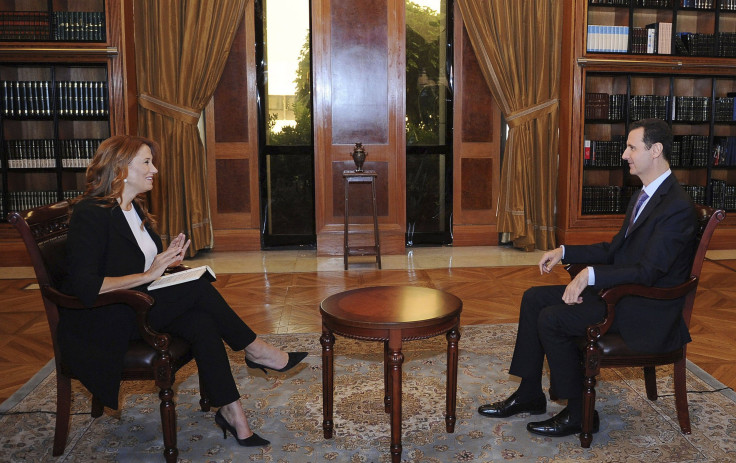Syrian President Bashar Assad Promises To Destroy Chemical Weapons; Air Strike Kills 12 In High School

Syria's President Bashar Assad told Italian television station RaiNews24 on Sunday that he will respect United Nations accords on chemical weapons.
"We joined the international agreement against the acquisition and use of chemical weapons even before this resolution was passed," he said when asked if Syria would comply with Friday's Security Council resolution.
"The central part of it is based on what we ourselves wanted. So it is not about a resolution, in reality it is our own intention," Assad said.
The dictator also said he is willing to discuss a political solution to Syria's civil war, but that he won't talk with armed rebels until they give up their weapons, according to the Associated Press. Video of the interview was posted Sunday on the Syrian presidency's official Facebook page.
Assad’s comments come after a resolution to destroy his chemical stockpile was passed unanimously by the U.N. Security Council on Friday.
The U.N. resolution was based on a deal struck this month between the U.S. and Russia that averted an American military strike over allegations that the Syrian government used sarin nerve gas in an Aug. 21 attack on a Damascus suburb that U.S. officials said left at least 1,400 people dead.
All 15 members of the council voted in favor of the resolution, a landmark decision aimed at taking poison gas off the battlefield in the escalating two-and-a-half-year conflict. More than 100,000 Syrians have been killed during that time while millions have been displaced.
On Sunday, at least 12 people, mostly students, died in an air strike that hit a secondary school in the rebel-held city of Raqqa, according to the Voice of America. The attack appeared to hit the yard in front of the school early Sunday morning, which is the first day of the week at public schools in Syria. The Syrian Observatory for Human Rights said the death toll from Sunday's air strike on the school in Raqqa is likely to rise because some people were critically wounded.
An Agence France-Presse photographer said U.N. chemical weapons experts on Sunday left their Damascus hotel to carry out a new mission. The U.N. has said the experts are investigating seven alleged chemical weapons attacks and expect to wind up their work on the ground on Monday. They hope to have a comprehensive report ready "by late October."
© Copyright IBTimes 2024. All rights reserved.












